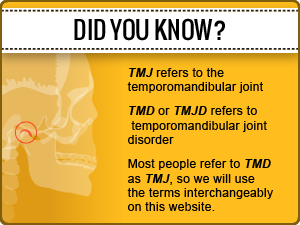Originally Published Highland Park Landmark Newspaper
By Alan P. Henry
Highland Park dentist Dr. Ira Shapira has a message for anyone suffering from TMJ disorders including migraines or for those looking for a way to deal with issues related to sleep apnea and snoring, including but not limited to ADD and ADHD.
“I want people out there who have problems and feel like there is no hope to know there is hope,” he said.
Dr. Shapira, a resident of Highland Park for 34 years and practicing dentist for almost four decades, has just opened an office at 3500 Western Ave. in Highland Park. Unlike his general dental practice in Gurnee, this office serves as a resource for people suffering chronic pain.
“I love changing people’s lives,” he said. “You have someone who has chronic pain, when you take away their headaches and their face pain, to me this is the most rewarding part of anything I do.”
Dr. Shapira’s approaches to headache treatment are not unique, but neither are they universal. Most doctors treating headaches are physicians or neurologists, he said, and if after tests they see no obvious issues involving the brain or tumors, they typically “make the assumption that it is a chemical problem” and turn to drugs to treat the problem.
But according to Dr. Shapira, the origin of most headaches is the trigeminal nerve, a nerve that is responsible for sensation in the face and motor functions such as biting and chewing, and it is from that direction that treatment is best directed.
He founded www.Ihateheadaches.org, an online resource designed to help people find ways to combat chronic neurological pain. The site, which includes a blog written by Dr. Shapira, can be used to find a doctor and also as an educational tool where a person can discover all they need to know about the kind of headache they may have.
“Many people in pain and desperate for an end to their headaches will look to CAT Scans, powerful medication and more to help them. Very few will look to a dentist who is able to find a solution through physiologic science,” writes Dr. Shapira. “Our site is designed to assist you in taking the first steps of pursuing physiologic eduction, diagnosis and treatment.”
Dr. Shapira was initially inspired to take on the treatment of issues related to sleep apnea and snoring by way of an experience his son Billy had when he was five.
After observing a limited attention span, excessive tiredness and unusual behavior in Billy, Dr. Shapira took his son to pediatricians, ENTs and allergy doctors, who said he had ADHD. “Basically, they told us he couldn’t start kindergarten and they wanted to put him on ritalin for life,” he said.
But Dr. Shapira also took Billy to the sleep center at Rush, where a sleep test showed he had severe sleep apnea — his heart stopped beating 60 times an hour when he was sleeping. “We took his tonsils and adenoids out when he was five and widened his mouth orthodontically, so the same kid who couldn’t start school because he had ADHD ended up graduating college magna cum laude with double majors and double minors,” said Dr. Shapira. “Turns out his drug of choice was oxygen. He needed to breath. Because he couldn’t breath, he had disturbed sleep. Back then we didn’t know it, but now we know now that disruptive sleep can give you exactly the same symptoms of ADHD.”
Seeing the positive changes in his son after his airways were opened, Dr. Shapira turned his attention to the field, and the relief proper treatment can give.
“There are airway issues that start young and go all the way through life,” said Dr. Shapira. “If I can help make somebody’s quality of life better, that is huge.”
Currently, he said, as many as 80 percent of children have “underdeveloped jaws” which means they run the risk of having problematic airways. “If you have a child that is snoring, that is not normal,” he said.
Dr. Shapira now has child patients as young as two for whom he makes appliances that can be worn at night. “We can grow them bigger airways,” he said.
Dr. Shapira founded www.IHateCPAP.com, a one stop source for information about sleep apnea. Severe sleep apnea affects more than 20 million Americans and can lead to hypertension, heart attack, stroke, depression, muscle pain, fibromyalgia, morning headaches, and excessive daytime sleepiness. Most people with mild sleep apnea are aware that they snore and feel overtired or fatigued but are unaware of potentially serious medical problems which may exist, he said.
Dr. Shapira, DDS, D,ABDSM, D,AAPM, FICCMO is a Diplomat of the American Board of Dental Sleep Medicine, a Diplomat of the American Academy of Pain Management, a Fellow and current Secretary of the International College of CranioMandibular Orthopedics, and a former Assistant Professor at Rush Medical School, where he researched effect of jaw position on sleep apnea.
He has written a chapter on anti-aging dentistry in an anti-aging medicine textbook; is Dental Section Editor of Sleep and Health Journal; has lectured in the US and abroad on TMJ disorders, sleep apnea, dental sleep medicine and anti-aging medicine, and has several patents on stem cell collection from developing wisdom teeth and currently are awaiting NIH funding of a study at UIC and Baylor.
He recently started Sleep Well Illinois, a company that promotes universal sleep screening in physician offices, and just became the Chair of the Alliance of TMD organizations for a two year term.
His Highland Park office is Chicagoland Dental Sleep Medicine and the Website is www.ThinkBetterLife.com

